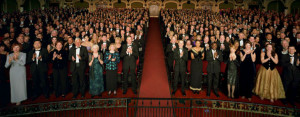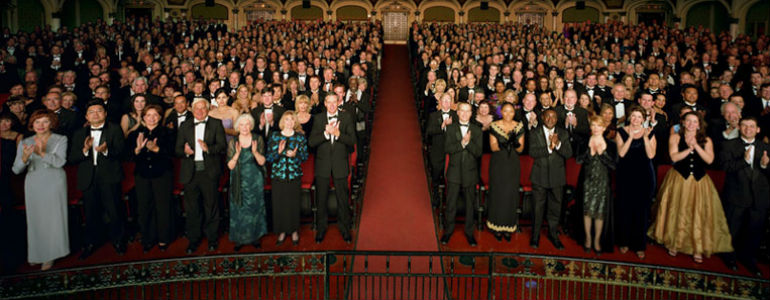The digital disruptions of the twenty or so years have changed, forever, the ways we do just about everything, from how we shop and order cabs or take-aways to finding romantic partners and sourcing and consuming news, music and entertainment. A lot of this has been fantastic: I met my husband online, and I now have the world in the palm of the hand that holds my mobile on call at any time I need it.
It was also once optimistically believed that it would be a democratising force: that old hierarchies could be challenged, and the gauntlet thrown down for the wider public to participate in conversations that affect them, whether about politics, art or any other subject under the sun they are interested in.
But we’ve seen new ways of disruption and distrust evolving in its wake, including the most basic but highest levels of democratic involvement with foreign actors influencing both the outcome of the US presidential election and our own Brexit referendum. And the problems of authority and who and what can actually be trusted has increased exponentially as a result, with a US president who decries every world view that does not correspond with his own as “fake news” and spreads lies and false narratives on a daily basis — or simply seeks to ban a reporter that he disagrees with entirely from the White House grounds.
 And now that even the US President does it with impunity, others are empowered to try the same tactics. A few months ago an entirely false narrative was put out on social media that I had failed to applaud during a regional musical I attended. Never mind that applauding the actors is only a courtesy and not an obligation — though in fact I had clapped, but did not join in the standing ovation — it was also impossible for the allegedly hurt actors to even see me, as I was seated in the fourth row of the dress circle and in any case, as the star actor himself tweeted on the night, he didn’t realise I was in as he couldn’t see me over the heads of the people standing and cheering, thus proving the lie.
And now that even the US President does it with impunity, others are empowered to try the same tactics. A few months ago an entirely false narrative was put out on social media that I had failed to applaud during a regional musical I attended. Never mind that applauding the actors is only a courtesy and not an obligation — though in fact I had clapped, but did not join in the standing ovation — it was also impossible for the allegedly hurt actors to even see me, as I was seated in the fourth row of the dress circle and in any case, as the star actor himself tweeted on the night, he didn’t realise I was in as he couldn’t see me over the heads of the people standing and cheering, thus proving the lie.
But nevertheless many of the cast seized on this apparent discourtesy to pre-empt any negative comments I had about their show, and several people — including the show’s director and other lead — blocked me on Twitter (which is entirely their right, as I realise that they may not want to see criticism of their show on their timeline).
In the midst of this, social media warriors weaponise twitter more to enrage than engage. It’s a forum, of course, that favours the argumentative and aggressive, and those that want to wage battles from the safety of their computer screens.
Critical diversity has been a subject I have actively often promoted: not just of opinions (it’s great that we have so many professional critics still, so that there isn’t necessarily a consensus on every show), but of the people expressing them, in terms of age, gender and race. The latter is is still a work in progress; though there are now probably as many female critics writing for significant outlets as there are men, there’s still very little BAME representation, though this is changing both here at The Stage and on The Guardian.
For some, change can’t come fast enough; as Bec Martin-Williams, participation manager at the Arcola, recently suggested in an exchange on the subject, “But when all the views are coming from the same types of people, certain types of work are going to lose out, no matter how much one older white person liked the latest version of Richard III versus another.”
She has a point; but it’s not easy for individual critics to fix the system: we’re part of it, for sure, but we didn’t invent it. When I pointed this out, she replied: “It allows critics to shrug off any responsibility for owning their privilege and cultural understanding….. Y’all ARE the system. You are the gatekeepers of what gets seen and therefore valued. And to pretend otherwise and say well we are who we are and we like what we like is both dangerous and ignorant.”
It’s tough being called dangerous and ignorant; but what do we do? Call for ourselves to be sacked? As The Observer recently wrote of defiant Brexiteers, “They remain defined by their futile oppositionalism, their inability to put forward a vision or a plan.”
And the same is true here. Change won’t happen by going to war with the current (perceived) cultural guardians, but by media outlets recognising that diversification is necessary to maintain the active engagement of their readers
In a feature on the current state of criticism in The Observer last week, one of its more recently appointed film writers Simran Hans had a conversation with the paper’s long-time theatre critic Susannah Clapp. Hans is both the only contracted critic on a broadsheet who is a person of colour and under 35 — across all art forms. And when this was put to her, she said: “I didn’t know it was quite as stark as that. It does feel weird to go into the screening room and have nobody who looks like you… It’s a problem of access. And it only gets fixed if people with editorial power are either actively looking to encourage people and to train them. Because the apprenticeship is the job. You learn by doing it. Also it’s important to point out that I have a reasonably middle-class upbringing: I do think the most problematic barrier is still class.”
And she pointed out it’s also ultimately about viewpoints, too: “We do need more different voices, but there needs to be a plurality of both voices and views, because that’s what will keep criticism alive. If there are a lot more women, but they are replicating the same confirmation bias as the men, then it becomes a feedback loop.”
The feedback loop of twitter is similarly counter-productive. We need to be having these conversations; but theatres and critics alike recognise that we need each other, too. Looking for solutions together rather than attacking might be a more constructive route.

